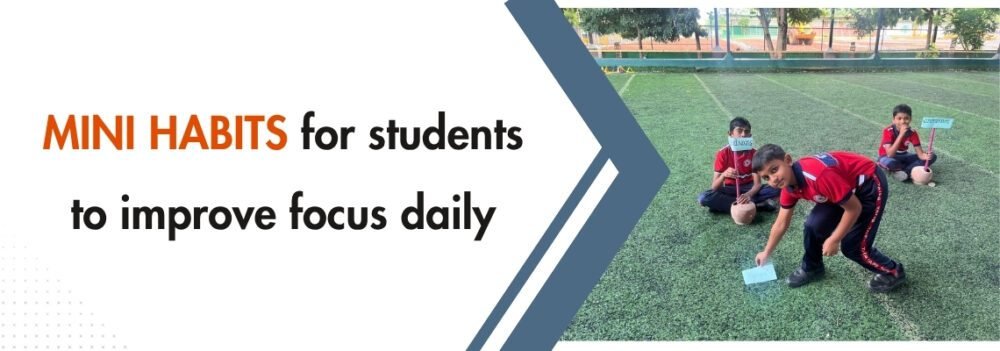Arjun was a bright middle‑school student in Chennai, but by mid‑afternoon his attention would drift. Despite hours spent at his desk, he struggled to sustain focus on his math problems and science notes. His parents noticed his frustration and brought in a personal tutor, who recommended introducing mini habits for students—tiny, daily routines designed to prime the mind for concentration. Though skeptical, Arjun agreed to give it a try.
Starting Small with Mini Habits
On the first morning, Arjun set a simple two‑minute timer before tackling any assignment. During that short window, he wrote down the chapter title and one question he hoped to answer. It felt too easy to matter, yet something surprising happened: once the timer buzzed, he was already mentally warmed up and often continued studying for another ten minutes. Seeing this small success, he added a one‑minute deep‑breathing exercise before each session, clearing mental clutter and signaling to his brain that it was time to focus.
Habit Stacking in Action
By week two, these mini habits for students had become part of Arjun’s routine. His tutor explained the concept of habit stacking—linking simple behaviors together so each one cues the next. After his two‑minute planning, Arjun moved seamlessly into his breathing exercise, then set to work on his worksheets. The chunking of tasks into brief, manageable steps transformed how he approached homework. Instead of feeling overwhelmed, he knew exactly what to do first, what to do next, and how to stay calm throughout.
Visible Changes in Performance

Arjun’s parents were the first to notice the difference. Where he once slapped together answers just to finish, he now worked more methodically, catching mistakes before they piled up. His tutor saw a marked improvement in both speed and accuracy during tutoring sessions. By applying mini habits for students, Arjun harnessed small wins to build momentum, and his grades on weekly quizzes began to climb steadily.
Introducing the “Mental Dump” Technique
In the third week, Arjun struggled with distractions—random worries about exams and weekend plans. His tutor suggested a new mini habit: a one‑minute “mental dump.” Before studying, Arjun jotted down any nagging thoughts—everything from an upcoming cricket match to chores he’d forgotten. This brief release cleared his working memory, making it easier to return to algebra without mental interruptions. Cognitive research supports this practice, showing that offloading worries onto paper frees up brainpower for sustained attention.
Sustained Focus Through Tiny Routines
As these mini habits became ingrained, Arjun’s study sessions transformed. He no longer dreaded sitting down at his desk. Instead, each day began with two minutes of planning, one minute of breathing, and a quick mental dump—all mini habits for students that coaxed his mind into a state of readiness. On tougher topics like chemical reactions or geometry proofs, he still faced challenges, but the act of beginning felt frictionless. The simplicity of these habits meant that even on days when he felt sleepy or distracted, he could rely on only a few minutes of effort to spark real engagement.
Key Takeaways for Parents and Tutors
Arjun’s story offers clear insights for anyone guiding a student:
- Simplicity Wins: Choosing habits that take one to two minutes ensures they’re never skipped.
- Consistency Matters: Small actions repeated daily build powerful neural pathways over time.
- Positive Reinforcement: Celebrating each two‑minute win boosts motivation for the next session.
- Adapt and Expand: Once core mini habits stick, add new ones—like quick review quizzes or stretch breaks—to sustain growth.
The Lasting Impact of Mini Habits
By the end of the month, Arjun had not only improved his grades but also regained confidence in his ability to learn. What began as a trial of mini habits for students became a blueprint for success—one that required no elaborate schedules or marathon study sessions. His transformation shows that focus and productivity often start with the smallest steps: a moment of preparation, a breath of calm, and a brief clearing of the mind. For parents and personal tutors seeking to help students flourish, the secret may lie not in grand gestures but in the tiny, consistent routines that pave the way for lasting academic achievement.


